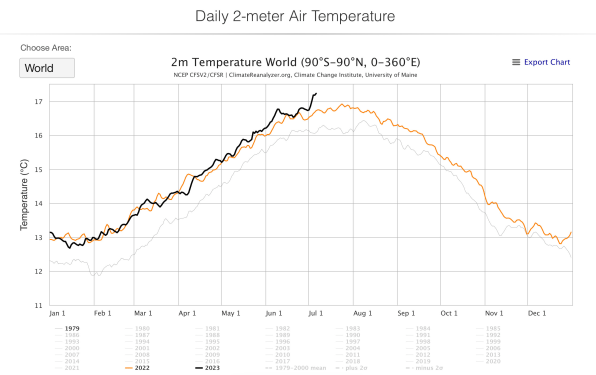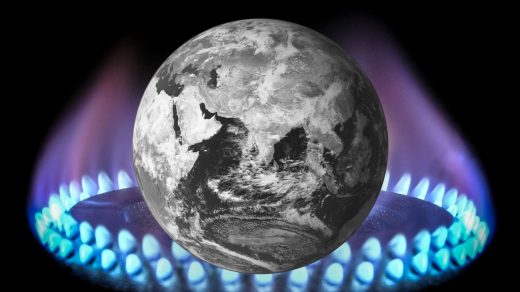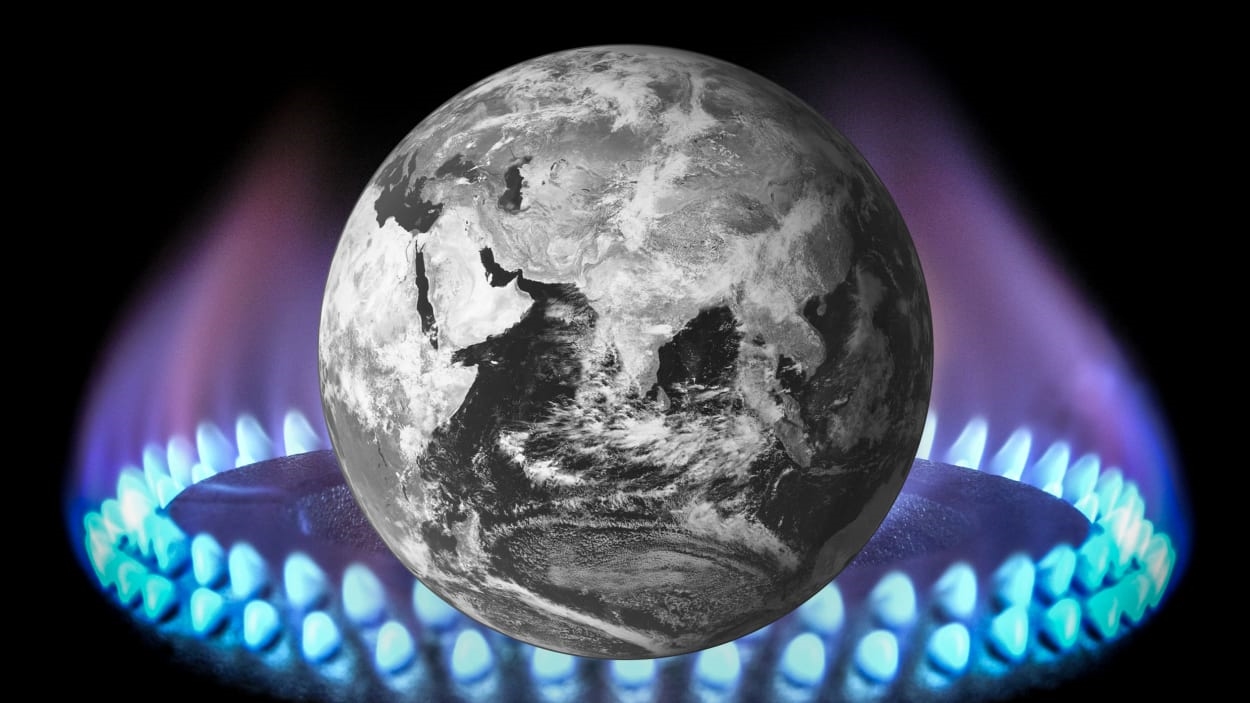Earth just hit another ‘hottest day ever.’ Here’s the online tool that maps weather extremes
The planet has just reached a horrible, if unofficial, milestone: its hottest day ever—four days in a row. As ABC News reports, Earth since Monday has been reaching new average global highs:
Though a global temperature in the low sixties might not sound bad, keep in mind it’s an average of the temps across the globe—from the hottest deserts to the coldest polar regions—and it shows that the Earth’s climate is moving in the wrong direction.
The data comes from the University of Maine’s Climate Reanalyzer, which includes online tools that are able to visualize just how bad things have gotten. As you can see from the graph, its data sources go back to 1979, represented by the gray line in the screenshot below. The orange line shows temps for 2022 and the black line shows temps for 2023. As the Associated Press reports, the website is not an official government source, but it’s a much-cited one, especially this week.

Last year was the Earth’s hottest on record, but as the data shows, 2023 is already surpassing those highs. Though the difference is within the range of 1ºC, that degree is enough to cause everything from extreme weather events to an acceleration in the melting of the ice caps to the warming of the Earth’s oceans. Researchers say the cause of this year’s extreme heat is a combination of manmade greenhouse gas emissions and the El Niño weather cycle.
The rising temperatures will almost certainly lead to more deaths. In the United States, heat-related illnesses already cause 600 deaths per year. And the bad news is temperatures may get even hotter over the next six weeks, meaning the Earth could continue breaking records this year that shouldn’t be broken.
(9)



